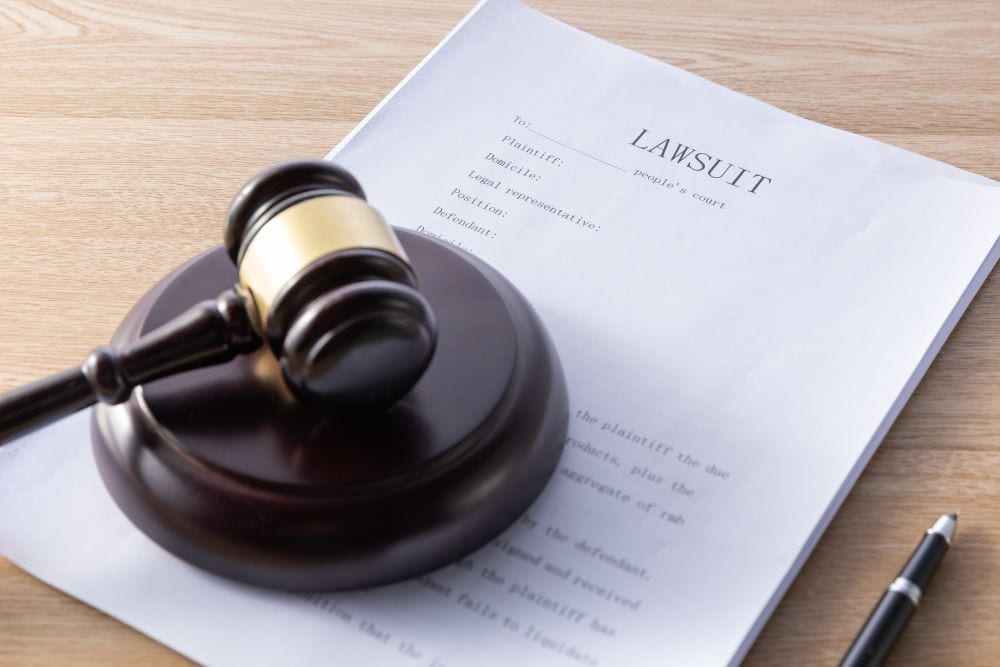
Losing a loved one is an emotionally challenging experience, especially if their death was caused by someone else’s negligence or wrongful actions. In such cases, family members may seek justice and financial compensation through a wrongful death lawsuit. But who exactly has the legal right to initiate such legal action on behalf of the deceased? What are the complexities involved in filing a wrongful death claim?
In this comprehensive guide, we delve into these questions to provide clarity and guidance for those considering legal action after the loss of a family member.
What Constitutes a Wrongful Death Lawsuit?
A wrongful death lawsuit is a civil action brought against a party who is legally responsible for someone’s death due to their negligent or intentional actions. Wrongful death lawsuits aim to hold the responsible party accountable for their actions and provide compensation to the surviving family members for their losses. These losses may include financial support, companionship, guidance, and emotional suffering resulting from the loved one’s death.
Who Can Sue for Wrongful Death on Behalf of a Deceased Family Member?
In Nevada, as in many other states, only specific individuals are legally entitled to file a wrongful death lawsuit on behalf of a deceased person. These individuals typically include:
Surviving Spouse: In many cases, the surviving spouse has the first right to file a wrongful death lawsuit on behalf of the deceased. This is based on the assumption that spouses share a close bond and may suffer significant emotional and financial losses as a result of their partner’s death.
Children: If the deceased person has surviving children, they may also have the right to sue for wrongful death. This includes both minor children and adult children who were financially dependent on the deceased.
Parents: In some cases, the parents of the deceased may be entitled to bring a wrongful death claim, particularly if the deceased was unmarried and had no children.
Other Dependents: Depending on the circumstances surrounding the death, other individuals who were financially dependent on the deceased, such as stepchildren or adopted children, may also have the right to sue.
The Estate’s Personal Representative: The personal representative, also known as the executor or administrator, is appointed by the probate court to manage the deceased person’s estate. This individual acts on behalf of the estate and has the legal authority to initiate legal action, including filing a wrongful death lawsuit.
It’s important to note that the personal representative of the estate typically files the lawsuit on behalf of all eligible surviving family members. This helps ensure that the legal process is streamlined and that all parties with a rightful personal injury claim to compensation are represented.
How Much Compensation Can I Seek?
One of the primary concerns for individuals considering a wrongful death lawsuit is the potential compensation they may receive. While every case is unique, and the amount of compensation can vary based on various factors, eligible family members may seek financial damages for:
Funeral and Burial Expenses: This includes the costs associated with the deceased person’s funeral, burial, or cremation.
Loss of Financial Support: Surviving family members may be entitled to compensation for the income and financial support they would have received from the deceased if they were still alive.
Loss of Companionship and Consortium: Family members may receive compensation for the loss of companionship, guidance, and support that the deceased would have provided.
Pain and Suffering: Compensation may also be awarded for the emotional pain, suffering, and mental anguish experienced by surviving family members due to the loss of their loved one.
Additionally, in cases where the responsible party’s actions were particularly egregious or reckless, punitive damages may be awarded to punish the wrongdoer and deter similar behavior in the future.
What Are the Statutes of Limitations for Suing on Behalf of a Deceased Family Member?
Like all legal actions, wrongful death lawsuits are subject to statutes of limitations, which are strict deadlines for filing a claim. In Nevada, the statute of limitations for wrongful death lawsuits is generally two years from the date of the deceased person’s death.
It’s crucial to understand and adhere to these deadlines, as failing to file a lawsuit within the specified timeframe can result in the forfeiture of your right to seek compensation. Therefore, if you believe you have a valid wrongful death claim, it’s imperative to consult with an experienced wrongful death lawyer as soon as possible to ensure that your rights are protected.
Why Do You Need an Attorney in This Case?
Navigating a wrongful death lawsuit can be incredibly complex and emotionally challenging, especially in the aftermath of losing a loved one. Hiring an experienced wrongful death attorney is essential for several reasons:
Legal Guaidence: Wrongful death cases involve intricate legal proceedings, including gathering evidence, negotiating with insurance companies, and representing clients in court. An experienced attorney will have the knowledge and expertise to navigate these complexities effectively.
Emotional Support: Dealing with the loss of a family member is emotionally taxing, and the legal process can exacerbate these feelings. A compassionate personal injury attorney can provide much-needed support and guidance throughout the case, helping alleviate some of the emotional burden on the surviving family members.
Maximizing Compensation: Insurance companies and opposing parties may attempt to minimize the compensation owed to surviving family members. A skilled attorney will advocate tirelessly on behalf of their clients to ensure they receive the maximum compensation available under the law.
Protecting Your Rights: Without legal representation, surviving family members may be at a disadvantage when negotiating with insurance companies or navigating the complexities of the legal system. An attorney will protect their clients’ rights and ensure that they are treated fairly throughout the process.

Contact BLG for Legal Help
In conclusion, understanding who can sue on behalf of a deceased person is essential for those considering legal action after the loss of a loved one. By enlisting the support of experienced attorneys, surviving family members can navigate the complexities of wrongful death lawsuits with confidence, seeking justice and fair compensation for their losses.
If you’ve lost a loved one due to someone else’s negligence, don’t wait another moment to seek the justice your family deserves. At BLG, we understand the pain and uncertainty you’re facing, and we’re here to help. Our experienced attorneys are committed to fighting tirelessly on your behalf, ensuring that those responsible are held accountable.
Contact BLG today for a free consultation.




